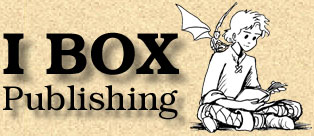|

30 percent.
Through the invisible but ubiquitous force propelling crowd behavior and mob logic, 30 percent appears to have been settled upon as the magic number in digital publishing. —Want to publish your book on a battery-operated device? That'll be 30 percent please, (of the sale price.) Plus incidentals.
—And those incidentals can vary wildly, depending on how blatantly corrupt the gate-keeper in question happens to be, be it Amazon, Apple or Other. In Apple's case, there are flat start-up fees and restrictive license agreements associated with publishing on the iPad which can nickel and dime you to the tune of a couple hundred bucks, while with Amazon, a would-be publisher can expect to pay vastly over-valued bandwidth fees, high pay-out minimums and the total surrender of individual control over what the book's cover price ends up being. —All of which is before the IRS gets involved.
If you work with an aggregator, like Smashwords, LuLu, Libredigital, or Constellation, etc. (choosing one of which is a requirement for working with Apple's iBook store), then you can expect to have an additional 10 to 20 % cut from the pie.
But 30 percent is the base-line.

Apple and Amazon offer their own reader devices. Apple has its iPad line, and Amazon the Kindle. These are known as proprietary devices, which come streamlined to enable quick and easy sales through their parent companies. Apple is particularly devoted to keeping things within their control, making it challenging to bring non-Apple approved apps and books into the device, hence the term, “Walled Garden” used to describe the Apple iPad/iPhone world.
The iPad, as many know and have complained, was deliberately designed in such a way as to make the normally simple task of data-sharing through standard cables such as USB and common memory card formats a frustrating process, requiring the purchase of dongles and various third party interfaces, many of which were not even available in the early years of the iPad's life. Apple knows well that the more hoops one has to jump through, the less likely a user is to bother, leaving them to return to the easy route of simply adopting the methods provided (and autocratically controlled) by Apple. This, of course, translates into more revenue for Apple, as a book or piece of software bought through some other company's store and brought into the iPad device through a USB cable or memory card effectively bypasses the iBookstore altogether.
While many claim the walled garden controls are implemented in the interest of security against bugs and viruses, and while there is some validity to that claim, (as there is some validity in nearly any soothing apologist argument; Socrates demonstrated the ability to argue any random and ridiculous premise with success, logic being the scampy thing that it is), in our hearts however, we well know that for the most part it comes down to two things: Money and Control. Control, to ensure that the idle customer spends money where Apple can take a cut while keeping the customer's eyes focused squarely upon that most mesmerizing of fruit logos.
Amazon's Kindle devices are less restrictive, allowing USB connections, but then the the Amazon sales tactics are more brazen and bullying, as though to make up for it.
Of course, there are ways around proprietary road blocks, but they require extra steps and create complications, making one wonder at such schemes. When I was a child, (whose father was an engineer with telecommunications giant, Nortel), the concept of communications standards seemed part of a utopian image to me, a part of humanity's bright future which any sane world should by rights set its rudder toward, cutting down barriers and difficulties to make all the mechanisms of society work better for everybody. And coming up with ubiquitous standards is hard! It's like getting the United Nations to agree on collective policy, (ones which don't involve bombing people). Everybody has a different set of needs they want to service, so any time a good and genuinely wise standard decision is settled upon allowing everybody to put their energies into implementation rather than bickering, it is cause for celebration!

One of the first standards which ever came about through collective decision was in the field of steam engine construction. In the steam age, lots of engines were in popular use; it was a powerful, liberating technology allowing humanity to cross oceans and nations with unparalleled ease. Everybody wanted a piece of the action, and so many steam engines were built and put into service. The problem, however, was that if you built a boiler tank on a train or river ship incorrectly, it would blow up.
A big iron boiler blowing up was no small thing! People, lots of people, died in spectacular episodes of fire and steam. In fact, this occurred frequently enough for people to realize that there was needed some basic set of rules for everybody in the steam engine business to follow. Governments and companies worked together and created industrial steam boiler manufacturing standards. Steal thicknesses and qualities were determined, numbers of bolts, maximum temperatures, etc., were settled upon, and lo and behold, this dramatically reduced the number of accidents. Every boiler was thereafter affixed with a plate which declared that its makers had complied with the standards, (thus, the term “Boiler Plate” contract was coined.) Score one for industry regulation! Everybody plays by the same smart set of rules and nobody gets hurt.
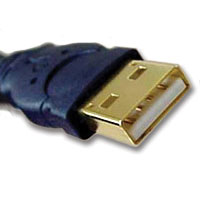
People immediately saw the advantages of adopting common standards in industry, beyond simple safety concerns. The practice extended to all manner of parts and machines. The common telephone plug and audio headphone jack are examples. Thus, a headphone set made by Sony will fit perfectly into a piece of audio equipment manufactured by Toshiba. The sense in this is obvious and everybody's lives are made that much less complicated. Basically, well-considered and well-implemented standards are awesome. A great human achievement.
So when Apple decided to ditch the ubiquitous and efficient USB and memory Card standards, they deliberately broke the lines of easy communication. For what reason? Why overturn humanity's efforts toward a happy future where everything works? The child in me squirmed with innocent alarm and confusion. “But. . , why would they DO that? They're breaking it on purpose!”
Such is the reaction of any healthy child when exposed to sickness in the adult world. A sickness which becomes harder to see as we grow older, but which is there nonetheless.
“Sickness? Er, isn't that a bit strong a word, Mark?”
I don't think so. Apple, on purpose, makes it as difficult as possible for people to communicate with each other using otherwise normal channels. As in the story of the mythical Tower of Babel being thrown down, the people of the world were struck confused with incompatible language barriers to prevent everybody from getting along and working together. Likewise, Apple is using the tactic of divide and conquer to fortify their own position. It's not about “creating an environment safe from computer viruses and malware.” Abusers often tell their victims that they are being kept weak and isolated for their own good, when in reality Apple is engaged in a game of territorial conquest. Stop sharing, force control, to hell with the good of the masses, the motivation is greed and Apple plays to win. Some might call this kind of behavior, “good business sense”. I call it, “Applied Game Theory”.
In Game Theory, the basic tenet for winning is to smile politely and pretend to be a cooperative player until you see an opening for personal advantage, at which point you stab your partner in the back and take the board for yourself. Blood, guts and domination!
A good, non-sociopathic citizen would never do this, knowing that functioning within behavioral boundaries which enhance the strength of one's community and thereby oneself, is the prime and reasonable objective. By contrast, Game Theory is inspired by and used by psychopathic minds for short-term gain at the expense of everybody else on the board. Thus, once again, Apple succeeds in creeping me out. (But, but. . , they seemed like such a nice quiet company.)
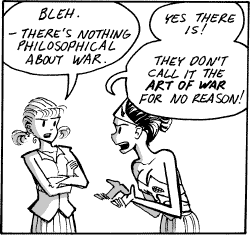
Of course, I am not the first to recognize this, and the public response has been significant. Other companies edged out of Apple's winning circle responded, embracing more open communication standards.
Enter the Android Devices.
What exactly is an Android Device anyhow. . ?
Android is an Operating System, like Windows, or MacOS, except it is exclusively designed to run on cell phones and tablets. An “Android Device” is one which is optimized, designed from the ground up to work with the Android OS.
Oh, and Android is Free. Unlike Windows or MacOS, you don't have to pay to use it.
Based on the Linux OS, Android was crafted around free and open standards, developed in cooperation with several companies all part of the “Open Handset Alliance” including Google, Sony, Intel, Motorola, Samsung and a host of others.
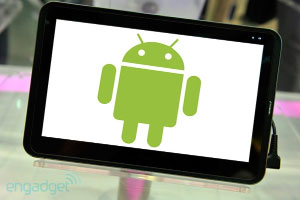
The nice thing about Android Devices is that they comply with global communications standards, and as such, they sport USB ports and standard memory card slots. This means you can take a memory card from your smart phone, your camera or your MP3 player, and plug it right into your Android tablet, moving files back and forth with ease. The garden isn't walled and you can read whatever books you want on your Android device. (So long as they aren't made using the Apple eBook format.)
Okay. So far, so good. But what does this free and open system mean for eBook publishers in terms of sales and distribution?
Well, actually, not a whole lot. It's nice to be able to move your books and files around with ease, but that 30 percent wall (plus incidentals), remains standing.

One of the biggest supporters of the Android OS is Google, and they have their own digital storefront which sells Android Apps and digital material like eBooks. Recently, they updated their Android App store, re-naming it, “Google Play”.
And their terms are, you guessed it, 30% off the top.
To be fair, it should be noted that Google Play's Book Store offers better basic terms than Apple or Amazon.
For instance, (and I didn't go into this little item before), consider the Minimum Payout Scam, played upon publishers by both Apple and Amazon.
Works like this: If your eBook sales don't go over a certain threshold, then you will simply not be paid at all. The threshold is $150 for Apple, and $100 for Amazon. What a criminal bonanza! There are thousands upon thousands of digital products which might sell only a handful of copies, and if they never break the arbitrary threshold, then you just don't get your money. Apple or Amazon keeps it all. 100 percent of it. One can only guess what the yearly profits are on what essentially amounts to tens or perhaps even hundreds of thousands of stolen digital sales.
Amazon, which does have a lower payout point makes up for it by additionally charging a processing fee of $10 per direct deposit. And, I believe, $15 per check. Sheesh! Does it take $10 worth of work for a computer to automatically execute some lines of code to deposit your money? Of course not. It's just another gouge.
By contrast, the Google Play book store doesn't mess around with such petty tactics. If you only make a dollar in a given month, then they deposit that amount into your account, no muss, no fuss, at the end of the month, (minus the bank fees, mind you, but you still get most of your dollar). And while this is laudable behavior, the fact that it should even need to be pointed out is hardly encouraging. “Oh, look! This company is NOT stealing candy from a baby! Isn't that nice? Good for them!” For crying out loud! This shouldn't be exceptional behavior. It should be the norm! The fact that it isn't is just more proof of psychopathy at work.
But even still. . .
30 percent. Plus incidentals. What is Google doing to deserve their one-third cut of an author's work? Really? Are we stuck here at 30 percent? What is the answer? Is there an answer? Or are self-publishers of digital books condemned forever to being bled of their hard-won earnings?
Well, as a matter of fact. . , as I have discovered, a solution does exist. There's a reason I've been slow in updating this series; I've been hard at work investigating, and by George, I think I've got it. It's actually quite an elegant solution.
So come back for Part V to read all about it.
Comics and the New Media, Part V
“The 97 % solution.”
-Cheers!
Mark
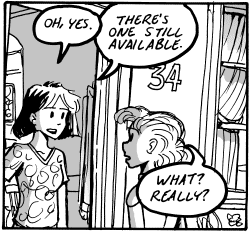
|
